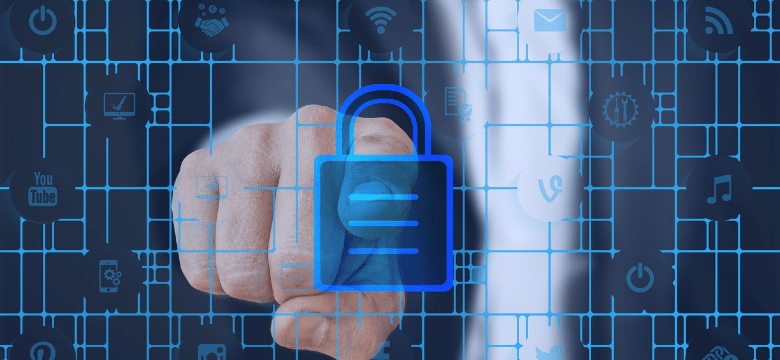








ITC Group - Listen to the article:
What is KYC and eKYC?
/
00:00KYC, which stands for Know Your Customer, is the solution to verify the customer’s identity throughout financial and credit activities. This solution apply between individual customers and financial institutions (banks, insurance companies, financial companies, etc.). In other words, if the customers cannot satisfy the minimum KYC requirements, the financial institutions may refuse to open an account.
KYC is an essential element to facilitate customer identification and fight against financial crime and money laundering. This ensure performance in the other stages of the process.
Previously, investors or customers who wanted to open an account had to spend a lot of time moving, queuing up, declaring information, signing the opening contract, waiting for confirmation and so on. This leads to other difficulties when working time is limited and the desire for account opening is increased.
Moreover, these onboarding processes help prevent and identify money laundering, terrorism financing, and other illegal corruption schemes by applying those requirements and standards, including ID card verification, face recognition, document verification such as utility bills as proof of address, and biometric verification
Learn more: How digital transformation helps business manage their customer’s identity
eKYC, which is electronic Know Your Customer, is an advanced solution to simplify the procedures and paperwork for both customers and financial institutions.
With the explosion of demand, the eKYC (electronic Know Your Customer) solution plays a significant role in facilitating investors and financial institutions to complete the securities opening process and trade within a day. At present, global banks or securities companies that get the approval of competent regulatory authorities have been transitioning to electronic customer identification.
The people who need to comply with this requirement are the following:
People wish to open a bank account or a credit card account
People who open securities accounts and trade securities
People who wish to open an account to register and buy insurance packages
Once customers would like to open an account, they must comply with KYC regulations and anti-money laundering regulations to limit fraud. On the other hand, the financial institutions are responsible to
You may enjoy: Enhancing KYC (Know Your Customer) Compliance with Cloud-Based Identity Verification
When using eKYC, customers only need a personal device connected to the Internet. There should be a camera to take photos and a video call as the process requirement of financial institutions. The ID card should be invalid and the mobile phone number should match the registered number to receive the OTP verification code. The process will be completed in just 5–10 minutes, or even shorter.
In general, customers download the app of the financial institution that they want to register with, then follow the process:
– Step 1: The customer fills in all required personal information fields on the application. Then, customers have to provide photos as proofs with two sides of their ID card, passport, driver’s license and so on.
– Step 2: The information is automatically scanned and extracted by OCR solution
– Step 3: After that, selfie photos and video calls are required to help Banks or Securities companies identify customers.
– Step 4: Face Recognition and Liveness Detection are technologies use to verify customers. If it fails to detect customers, they are requested to proceed with re-authentication.
Furthermore, there are more additional proofs and document requirements if the services request more information from customers to define their financial status.
Learn more about our solution: Identity Verification
OCR (Optical Character Recognition) is a specialized technology to read text in image files. In other words, it is a digital scanning tool that specializes in recognizing characters, handwriting, or typed letters such as ID cards, driver’s licenses, passports, business cards, documents, etc. The process of extracting and uploading encrypted information to the system is maximized to shorten the time, which is not over 3 seconds but guarantees accuracy.
Application for OCR
– Extract text information
– Extract information from statements and contracts
– Extract forms of banking, securities, insurance, telecommunications, and market research
– Extract Identity cards and driver license
– Extract schema information
– Photo search and analysis application
– Other solutions are on request
For instance, when we want to check the ID card, the system will check the accuracy of the ID number and 2D barcode. Then, it verifies the customer’s name, date of birth, and address. Also, the image/avatar will be checked to prevent Photoshop interference. This verification helps detect crumpled, folded edges, opacity detection, and fraud.
A facial recognition system is an application that automatically identifies a person from a digital image or a video frame from a video source. This system is commonly used in security systems and can be compared with other forms of biometrics, such as fingerprint or iris recognition systems.
The system automatically determines the exact position of the face and uses algorithms to extract the facial data. During the movement, the system is still able to identify the face. All the above processes take place in less than 3 seconds.
The process for facial recognition biometrics includes:
– Get modeling done by using a camera or relevant device (smart phones,…)
– Proceed to analyze data
– Make a comparison with the data in the database.
– The result after comparing
Fraud Detection is a fully managed service that spots potential fraudulent activities online, such as fraud in online payments and fake banking or securities accounts. Some of the frauds in insurance, banking and securities include:
– Identity papers are completely inauthentic
– Use the identity card of the twin to make transactions
– An image with various IDs
– One ID with various photos
– The selfie photos are different, while the ID information is the same
Fraud detection is an activity and process to prevent forgery at the starting point of the onboarding step to minimize fraud and make a good impression on customers at the beginning.
To complement and increase the effectiveness of facial recognition, Liveness Detection is a solution to help measure and analyze physical features and responses to determine if the biometric pattern is valid. By way of explanation, this is a method of verifying real people, preventing face spoofing and ensuring accuracy throughout the process of customer identification (eKYC).
Liveness Detection that use KYC and eKYC helps financial institutions to:
– Automate the Digital Onboarding process
– Enhance user security
– Decline risk in online payment
Active Liveness Detection currently applies in financial branches where bank tellers use it to verify customers, while Passive Liveness Detection is setting up in independent and nearby places. In contrast, there is no perfect method to completely eliminate all risks and fraud. Thus, it is necessary to apply multiple methods and technologies to optimize productivity for high-value and complex transactions.
Learn more: The Gatekeeper of Access: Ensuring Secure Identity Verification in the Digital Age
An electronic signature is a legal way to obtain consent or approval for electronic documents or forms, it can replace a handwritten signature in almost any process. An electronic signature is basically a form of information for the purpose of identifying the signers and their confirmation and consent to signed content.
The eSignature platform allows you to collect and analyze the signatures of customers and generate unique characteristics for each to help with the verification process later. Thanks to this, the onboarding process will be smooth, while the financial institutions can focus on attracting new customers and increasing user experience in the complicated financial service.
At ITC Group, we provide eKYC consulting and solutions that will suit your business needs and requirements in a variety of business domains, such as banking, securities and other financial services. Benefits of our eKYC solutions:
– Online onboarding without face-to-face requirement
– Any platform
– Minimize risk of identity fraud
– Regulation adherence
– Eliminate paperwork
– No Geo-limitation
Contact us now for better consulting!
Stay ahead in a rapidly changing world with our monthly look at the critical challenges confronting businesses on a global scale, sent straight to your inbox.